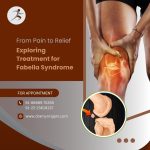Due to the rising cases of coronavirus disease (COVID-19) throughout India, most parts of the country are in an extended period of lockdown. The fate of when the lockdowns are going to be lifted will get revealed soon. But, currently most of the Indian populace is homebound – including the professionals who used to go to the office every day.
People around the world are showing great resilience in fighting off this deadly pandemic.
Speaking of the ‘Work from Home’ phenomenon experienced as we speak by millions across the globe, the enterprising kind amongst us have made great adjustments to their domestic lifestyles to accommodate office work in their home routine, while taking care of family and contributing to daily housework.
The people who were already managing chronic pain at work – pain mostly related to shoulder joints, knee joints and other joints – are now facing additional quandaries in the shape of non-availability of proper furniture to sit and work from home at extensive stretches of time. For the people suffering, it’s important to note there are plenty of methods through which they can manage their infliction.
For immediate relief, you may seek professional help or go for an OTC curative – as most medical shops are still operating.
- Anti-inflammation Medicine
Decreasing the inflammation is essential in injuries to the rotator cuff, as also in tendonitis and arthritis, and other shoulder and knee injuries. Albeit for the short term, some famous, over-the-counter non-steroidal anti-inflammatory medicines (NSAIDs) are known to alleviate ache and bring down swelling.
Some of the common home remedies are mentioned below for your perusal.
- Heat Therapy
Using a heated gel pack, a heating pad or a hot water bottle can help you relax your tensed muscles and bring soothing relief to your inflexible shoulders and may bring natural reprieve to frozen shoulder pain, hardened knees and other joints. Muscle pain and arthritis can also be relieved through heat therapy.
- Cold Compress
Cooling is known to numb down sharp pain. Using a frozen gel pack, or putting ice cubes in a plastic bag or maybe a bag of frozen peas and wrapping the cold pack in a soft towel can help you lessen inflammation in the shoulder area. Remember, you should never apply your cold pack straight to the skin.
Another very important thing to keep in mind: whenever you feel that a certain activity is exaggerating or contributing to your joint pain, you need to quickly change that movement, rest for a bit yet, after a while, you may start moving your joints gently to keep the blood flowing to that region.
Precautions:
Take care of the following things, if you are indulging in certain exercises and stretches at home to help you make your shoulders and knees stronger and more flexible:
- Stop immediately if you’re experiencing joint pain while exercising; it may be too early to start
- Keep a watch on your stance; an incorrect way of exercising can worsen existing pain and may result in common workout injuries
- The importance of a good warm can never be emphasized too much
- Start your routine with lightly rolling the shoulder, moving your joints gently
- A brief shower with warm water just before exercising can also warm up your muscles




